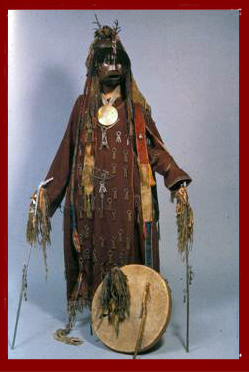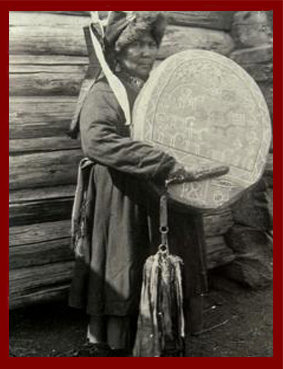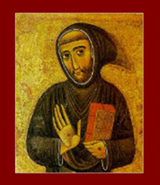










The Hebrew University
Department of Sociology and
Anthropology

Bibliography
Subject 1:
Magical Thinking
Evans-Pritchard, E.E. 1965. Theories of
Primitive Religion. Oxford: Clarendon Press
Subject 2: The
Origin of Religion and Evolution
Eliade, M. 1959.
Cosmos and history : the myth of the eternal return. New York: Harper
& Row.
Turner, V. 1969. The Ritual Process: Structure and
Anti-Structure. Chicago: Aldine Publishing,
Subject 3:
Animism and Magic
Durkheim, E. 1915. The Elementary Forms
of the Religious Life. London: Allen and Unwin.
Tambiah, J.
Stanley, 1985. "Form and Meanings of Magical Acts. In: Culture, Thought, and
Social Action: An Anthropological Perspective, Cambridge, MA: Harvard University
Press.
Subject 4: Structuralism and
Totemism
Levi-Strauss, C. 1962. Totemism.
Harmondsworth: Penguin Books.
Subject 5: Religion as a Social
System
Geertz, C. 1973. Religion as a cultural system. In The
Interpretation of Cultures. New York: Basic Books.
Lambek, M. 1993.
Knowledge and Practice in Mayotte, Local Discourse of Islam, Sorcery, and Spirit
Possession. Toronto: University of Toronto Press.
Subject 6: Religion and Taboos
Douglas, M. 1966.
Purity and danger: an analysis of concepts of pollution and taboo.
London: Routledge & K. Paul.
Obeyesekere, Gananath
(1981). Medusa’s Hair, An Essay on Personal Symbols and Religious Experience.
Chicago: University of Chicago Press.
Subject 7: Religious Agents
Gabler,
Eric. 2002. Beyond Belief? Play, Scepticism, and Religion in West African
Village. Social Anthropology, 10 (1), 41-56.
Subject 8:
Religion and Gender
Abu-Lughod, L. 1986. Veiled sentiments,
Honor and Poetry in a Bedouin society. California: University of California
Press.
Boddy, Janice. 1989. Wombs and Alien Spirits: Women, Men and the
Zar cult in Northern Sudan. Madison: University of Wisconsin Press.
Davidman. L. 1991. Tradition in a rootless world, Women turn to Orthodox
Judaism. Berkeley: University of California Press.
Mahmood, Saba,
2005. Politics of Piety, the Islamic Revival and the Feminist Subject.
Princeton: Princeton University Press.
Subject 9:
Possessed by the Devil: Ethnography and Other Demons
Ewing,
Katherine. 1994. Dreams from a Saint: Anthropological Atheism and the Temptation
to Believe, American Anthropologist, 96 (3): 571-84.
Favret-Saada,
Jeanne .1980. Deadly Words: Witchcraft in the Bocage. Cambridge: Cambridge
University Press.
Kearney, Michael, 1992. “A Very Bad Disease of the
Arms”. In Philip R. De Vita (ed.), The Naked Anthropologist: Tales from Around
the World. Belmont, CA: Wadsworth, pp. 47-57.
Stoller, Paul and Olkes,
Cheryl, 1989. In Sorcery’s Shadow: A Memoir of Apprenticeship among the Songhay
of Niger. Chicago: Chicago University Press.
Subject 10:
Shamanism as Technique
Eliade, Mircea. 1964.
Shamanism : Archaic Techniques of Ecstasy. (translated from the French by
Willard R. Trask). London : Routledge & K. Paul.
Viverios de Castro,
Eduardo, 1998. "Cosmological Deixis and Ameridian Perspectivism", Journal of the
Royal Anthropological Institute, 4, 3, 469-488.
Humphrey, Caroline. With
Urgunge, Onon. 1996. Shamans and Elders, Experience, Knowledge and Power among
the Daur Mongols, Oxford: Oxford University Press.
Winkelman, James, M.
1992. Shamans, Priests, and Witches : a Cross-Cultural Study of
Magico-Religious Practitioners. Arizona : Arizona State
University.
Subject 11: The Shamanic Power and
Authority
Hultkrantz, Ake. 1992. Shamanic
Healing and Ritual Drama : Health and Medicine in Native North American
Religious Traditions . New York : Crossroad.
Thomas, Nicholas and
Humphrey, Caroline (eds.). 1996. Shamanism, History and the state.
Michigan: University of Michigan Press.
Subject 12: The
Shaman's Career
Lewis, I.M. (1986) 1996. "The Shaman's Career".
Religion in Context, Cambridge: Cambridge University Press.
McClenon,
James. 2002. Wondrous Healing : Shamanism, Human Evolution, and the Origin of
Religion. Ililinois : Northern Illinois University Press
Jakobsen, M. D.
1999. “Neo-Shamanism and the New Age”, in: Shamanism: Traditional and
Contemporary Approaches to the Mastery of Spirits and Healing. New York and
Oxford: Bergahn Books, pp. 147-197.
Subject 13:
Magic and Miracles
Magic and miracle, in
Douglas, M. 1966. Purity and danger: an analysis of concepts of pollution
and taboo. London: Routledge & K. Paul.
Waida, M. 1986.
“Miracle”, The Encyclopedia of Religion. Eliade, M. (ed) Vol 9:541-548.
Ashe, Gregory, 1978. Miracles. London: Routledge & Kegan
Paul.
Kee, Clark, Howard. 1983. Miracle in the
Early Christian World. New Heaven and London: Yale University
Press.
Singleton, Andrew, 2001. “Your Faith Has Made You Well”: The Role
of Storytelling in the Experience of Miraculous Healing”. Review of Religious
Research. 43 (2): 121-138.
Shanafelt, Robert. 2004. Magic, Miracle and
Marvels in Anthropology, Ethnos, 69, 3, 317-340.
Subject 14:
Miracles and rituals in Rachels' Tomb
Sered,
Susan, 1989. "Rachel's Tomb: Societal Liminality and the Revitalization of a
Shrine", Religion, (19): 27-40.
Sered, Susan. 1986. "Rachel's Tomb
and the Milk Grotto of the Virgin Mary: Two Women's Shrines in Bethlehem.
Journal of Femenist Studies in Religion, 2 (2) 7-22.
Subject 15:
Stigmata and Saints Shrines
McKevitt, Christopher. 1991.
"San Giovanni Rotondo and the Shrine of Padre Pio". In: Contesting the Sacred,
the Anthropology of Christian Pilgrimage. John Eade and Michael J. Sallnow
(Eds.). Routledge: London and New York, pp.77-97.
Carroll, Michael P.
1987. Heaven Sent Wounds: A Kleinian Viwe of the Stigmata in the Catholic
Mystical Tradition, The Journal of Psychoanalytic Anthropology, 10, (1), winter,
17-38.
Sered, Susan, 1997. Symbolic Illness, Real Handprints, and other
Bodily Marks: Autobiographies of Okinawan Priestesses and Shamans, Ethos, 25, 4,
Dec, 408-427.
San Pio da Pietrelcina IN www.padrepio.it
Subject 16: Vision and
Apparitions
Isichei, Elizabeth. 1991. “Visions and Visionaries:
The Serach for Alternative Forms of Authority Among Catholic Conservative”,
Archives de Sciences Sociales des Religions, 75: 113-125.
Goodman,
Felicitas, D. 1986. “Visions”, The encyclopedia of Religion. Eliade, M.
(ed) Vol 15:282-288.
Subject 17:
Women's Worship
Zimdars-Shwartz, Sandra, L. 1991. “Modern Marian
Apparitions, Their Background, And Their Religious Milieu”, In: Encountering
Mary. Princeton: Princeton University Press.
Apparitions of Jesus and
Mary, www.Apparitions.org
Subject 18:
Guadalupe , Fatima and Lourdes: Rituals and the nation
state.
Brading, David, A. 2001. Mexican
Phoenix: Our Lady of Guadalupe, Images and Traditions Across Five Centuries.
Cambridge: Cambridge University Press.
Herrero, Juan, H. 1999.
“Mejugorje: Ecclesiastical Conflict, Theological Controversy, Ethnic Division,
Research in the Social Scientific Study of Religion", 10: 137-170.
Eade, John. 1991. "Order and Power at Lourdes: Lay Helpers and the
Organization of a Pilgrimage Shrine". In: Contesting the Sacred, the
Anthropology of Christian Pilgrimage. John Eade and Michael J. Sallnow (Eds.).
Routledge: London and New York, pp.50-76.
Subject 19: The
Miracles of Tinos and Pilgrimage .
Dubisch, Jill. 1995. In a
different place: pilgrimage, gender, and politics at a Greek island shrine.
Princeton, NJ: Princeton University Press.
Subject 20: The
Cults of Females Saints: Pscho-Cultural View
Carrol, Michael. 1996. The Cult of the Virgin Mary. Prienceton:
Preinceton University Press.
Subject 21: On Virginity and
Sexuality
Hastrup, Kirsten. 1978. "Virginity". In: S. Ardener
(ed.), Defininig Females. London: Croom Helm, 49-65.
Zimdars-Swartz,
S.L. 1988. "The Virgin Mary: Mother as Intercessor and Savior of Society". In:
Seeing Female: Social Role and Personal Lives, edited by S.S. Brehm, 69-79. New
York: Greenwood Press.
Subject 22:
Apparitions, Rituals and politics
Eade, J. 1991. Order and Power
at Lourdes: Lay Helpers and the Organization of Pilgrimage Shrine". In:
Contesting the Sacred, the Anthropology of Christian Pilgrimage. John Eade and
Michael J. Sallnow (Eds.) Routledge: Londong and New York, pp. 51-76.
Matter, A. E. 2001. “Apparitions of the Virgin Mary in Late Twentieth
Century: Apocalyptic, Representation, politics, Religion”. Religion. 31:
125-153.
Herrero, Juan, H. 1999. “Mejugorje: Ecclesiastical Conflict,
Theological Controversy, Ethnic Division, Research in the Social Scientific
Study of Religion, 10: 137:170.
Skrbis, Zlatko, 2005. "The Apparitions
of the Virgin Mary of Mejugoje: The Convergence of Croatian Nationalism and her
Apparitions", National and Nationalism, 11 (3):
443-462..
Subject 23: Visions, Social status and the Periphery
Wolf, Eric. 1958. "The Virgin of Gaudalupe: A
Mexican National Symbol", Journal of American Folklore, LXXI:34-39.
Subject 24: Rituals, Identity and the Nation
State
Bowman, Glen, 1993. "Nationalizing the Sacred:
Shrines and Shifting Identities in the Israeli-Occupied Territories", Man:
Journal of the Royal Anthropological Institute, 28(3), 431-460.
Subject 25: Magic, Holiness and Dreams
Tedlock, B. 1981. "Quiche Maya Dreams
Interpretation". Ethos, 9, 313-330.
Tuzin, D. 1975. "The Breath of a
Ghost: Dreams and the fear of the Dead", Ethos, 3:555-578.
Wallace,
A.F.C. 1963. "Dreams and the Wishes of the soul", American Anthropologist, 60,
234-248.
Lanternari, Vittorio. 1973. "Dreams as Charismatic Significant:
Their Bearing on the Rise of New Religious Movements" In T. R. Williams (ed.)
Psychological Anthropology. The Hague: Mouton, 221-235.
Macklin, J.
2005. "Saints and Near- Saints in Transitions: The Sacred, the Secular and the
Popular". In: The Making of Saints: Contesting Sacred Ground. J. Hopgood (ed.),
Tuscaloosa: the University of Alabama Press, pp. 1-22.
Subject 26:
Dreams and Culture
Crapanzano, Vincent. 1975.
"Saints, Jnun, and Dreams: An Essay in Maroccan Ethnopsychology" Psychiatry 38:
145-159.
Bilu, Y. 2000. Without bounds : the life and death of
Rabbi Ya'aqov Wazana. Detroit, MI : Wayne State University Press.





Course Objectives:
In this
course I analyze miracles, visions and dreams from an anthropological
perspective. In the introduction I present the overall arguments and
explanations of these religious experiences and how they were studied in
anthropological fieldworks. The second part of the course uses these
understandings for the analysis of miracles, apparitions, visions, and dreams
especially in Christians and Jewish modern groups.
The Anthropology of Miracles and Visions

















